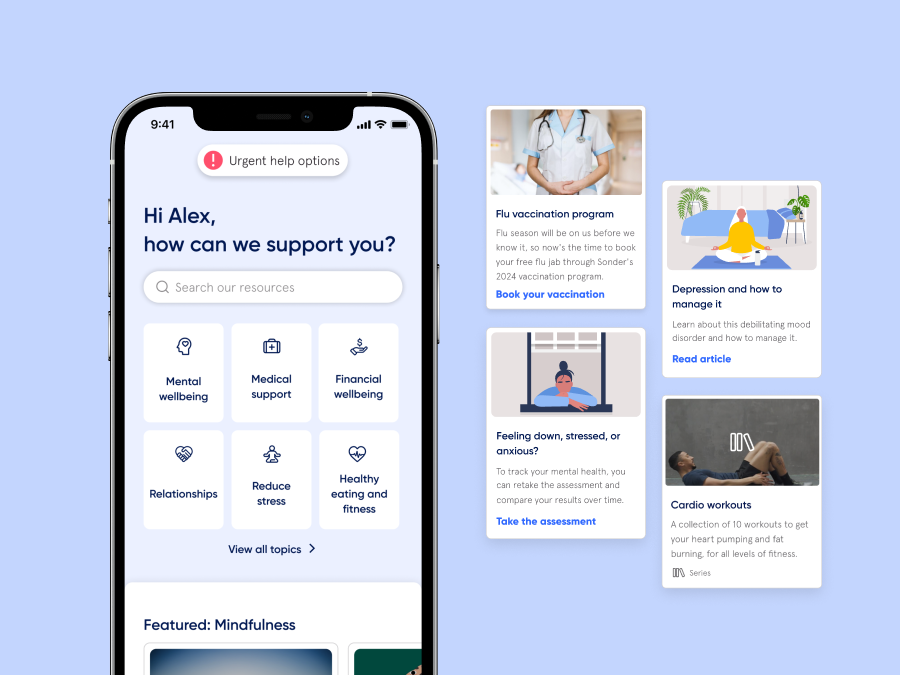Australian employees now have the right to disconnect and refuse work-related communications outside of hours. In this blog, we unpack what these legal changes mean and how both employers and employees can benefit.
From August 26, 2024, employees in Australia will have the right to disconnect from work-related communications outside their working hours. This new protection, which is part of the Fair Work Legislation Amendment (Closing Loopholes No.2) Bill 2023, brings Australia in line with other nations like France, Belgium and Argentina where similar rights have been enacted to support employees’ work-life balance.
The right to disconnect is an increasingly important issue in an age where the lines between work-life and home-life are increasingly blurred. A recent study from Safe Work Australia found that 33% of workers are experiencing work-related mental health issues due to poor work-life balance. An absence of work-life balance can lead to burnout, a syndrome that results from chronic and unsuccessfully managed stress, among other factors. For organisations, this can mean increased absenteeism and turnover, as well as lower engagement and productivity.
From August 2024 the law will apply to organisations with 15 employees or more. It will be introduced for organisations with less than 15 employees from August 2025.
“Rather than fearing punishment for non-compliance, organisations should see this as an opportunity to improve workforce management, boost productivity, and enhance employee wellbeing.”
Michael Bates, VP Legal at Sonder
Understanding The Right to Disconnect
1. What does it mean for employers?
The right to disconnect provides that an employee may refuse contact, or attempted contact, outside of working hours from their employer or a third party unless the employee’s refusal to do so is unreasonable. The legislation does not prohibit employers from contacting employees, rather, it focuses on protecting employees if they choose not to respond.
Not every attempt to contact an employee outside working hours will contravene the law;an expectation to respond may be deemed reasonable, based on:
- The nature and urgency of the reason for contact
- The method of contact (e.g. a phone call would likely be considered more disruptive than an email)
- Whether the employee is compensated for working outside their ordinary hours
- The level of the employee’s responsibility within the organisation
- The employee’s personal circumstances (e.g. caring responsibilities)
The ‘Right to Disconnect’ legislation represents a significant evolution in Australian employment law. It formalises the balance between professional obligations and personal time, giving employees a robust legal framework to protect their mental health and wellbeing.
Michael Bates, VP Legal & Company Secretary at Sonder
2. What does it mean for employees?
The right to disconnect does not prevent employees from working additional hours, or responding to communications if they choose to. Rather, it acts as a legal buffer, empowering them to maintain clear boundaries and switch-off after their work-day.
If there is a dispute and it can’t be resolved internally, both the employer and the employee can escalate the dispute to the Fair Work Commission or the employee can lodge an enquiry with the Fair Work Ombudsman. If an organisation is found to be in contravention of the law the Commission can issue a range of orders which, if breached, can lead to financial penalties.
Putting it into practice
- Establish and communicate clear expectations: Open a dialogue with employees about working hours and the expectations for communication outside of those hours. This should include discussions around what constitutes urgent contact and what procedures will be followed in an emergency.
“We need a job design that enables reflection and rest. Communicating expectations around responsiveness can help, so people know it’s okay not to respond to that Slack message or email. There’s no pressure to respond out of hours. It’s a very simple thing to do , but often we forget the need to set that expectation clearly with others.”
Raechel Gavin, Chief People Officer at Sonder
- Review contracts and policies: Ensure contracts and policies are updated to reflect the new legal requirements. This may include a Right to Disconnect Policy which documents expectations (including when it might be reasonable to expect a response outside of hours), procedures for emergency communications, and dispute resolution pathways.
- Train managers and leaders: Train and empower managers to lead by example. This could include practical tips and tricks such as scheduling emails or Slack messages to be delivered within working hours, or implementing an email signature that states that they do not expect a response outside of working hours.
- Review and adjust compensation strategies: Reassess how employees are compensated for after-hours work. Ensure that any necessary contact outside of normal working hours is fairly compensated and justified.
- Reassess expectations with clients: Set clear expectations with clients regarding after-hours communication. Remember, employees have a right not to respond to communication from third-parties as well.
How Sonder can help
Putting the right support in place is key to implementing the right to disconnect and reaping the rewards of improved work-life balance. As your team adapts to new working norms, it is important to ensure they have access to resources and services that enable them to effectively manage their wellbeing and switch off outside of working hours.
Through Sonder, your employees can access tailored learning and self-help resources, including a content series dedicated to work-life balance (our second most viewed series!). These resources are helpful for managers seeking to lead by example, implement the right culture, and support their teams to recharge outside of work hours. Beyond content, the Sonder app also provides 24/7 support pathways for employees to access health, safety, and care services outside of work hours.
Employers can be confident that they’re offering their employees comprehensive and accessible wellbeing support while remaining compliant with the latest legislation and fair work practices.

Ready to improve productivity and employee wellbeing?
Sonder is a workforce health and safety platform that provides the right care at the right time for personal safety, medical, and mental health needs. The Sonder app offers 24/7 immediate connection to expert support via chat or call, personal safety tools like smart check-ins and journey tracking, and access to wellbeing resources such as personal assessments and self-care content.
For more information about how Sonder can help you reduce people related risks and costs, ensure compliance, and build a resilient, productive workforce, we invite you to contact us here.
About Sonder
Sonder is a technology company that helps organisations improve the wellbeing of their people so they perform at their best. Our mobile app provides immediate, 24/7 support from a team of safety, medical, and mental health professionals – plus onsite help for time-sensitive scenarios. Accredited by the Australian Council on Healthcare Standards (ACHS), our platform gives leaders the insights they need to act on tomorrow’s wellbeing challenges today.



